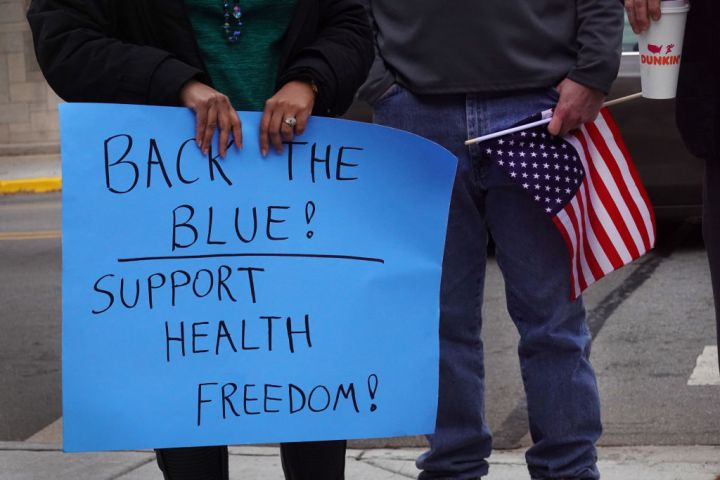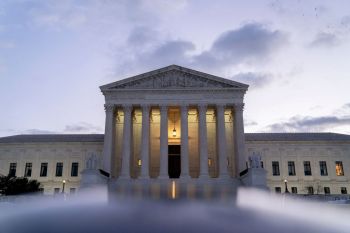
Police unions push back on vaccine mandates

Vaccine mandates for New York City police officers went into effect this week. Meanwhile the requirements for police officers are causing debates in other states and jurisdictions: Chicago, Los Angeles, Seattle, and elsewhere.
When COVID-19 vaccines first became available, many police departments were eager to get them, said Chuck Wexler with the Police Executive Research Forum.
“They were getting sick, they were dying, So when the vaccine came out many were arguing that their folks should get vaccinated first,” he said.
Then police unions got involved, Wexler said, and wanted to negotiate the rules.
“People aren’t simply stepping back and saying, ‘Look, let’s put aside all our differences, labor and management, let’s look at this from a public safety perspective and not politicize it,'” he said.
Police unions in New York City and Chicago have challenged the mandates in court. UC Hastings law professor Dorit Reiss said arguments usually come down to a question of harm on behalf of the public.
“They’re in a service profession, and they interact with people that are extremely vulnerable,” Reiss said.
In New York City, the vaccine requirements have already caused staffing shortages, as officers took unpaid leave or sick time, said Brian Higgins with the John Jay College of Criminal Justice. So far in New York City, only 34 police officers out of a force of around 35,000 chose to be placed on unpaid leave this week after the Nov. 1 deadline for vaccination.
“I think what you see in New York is going to be consistent throughout the country is as these mandates get closer. You’re going to have some people that are going to really think about whether or not taking the vaccine is worth losing their job,” he said.
Higgins said it’s less about the health aspect.
“It’s the mandate that they’re having the issue with this kind of just hard and fast rule, with very little deviation or exceptions allowed,” he said.
Higgins said officers would prefer to follow the more lenient federal vaccine rule that makes exceptions for vaccination if you get tested.
But, according to former OSHA head and George Washington University professor David Michaels, police departments in dozens of states won’t even be subject to that.
“Like Florida and Texas, for example, public sector workers work in what we call OSHA-free zones. They have no OSHA coverage,” he said.
There, vaccination rules for police officers will be up to local governments.
There’s a lot happening in the world. Through it all, Marketplace is here for you.
You rely on Marketplace to break down the world’s events and tell you how it affects you in a fact-based, approachable way. We rely on your financial support to keep making that possible.
Your donation today powers the independent journalism that you rely on. For just $5/month, you can help sustain Marketplace so we can keep reporting on the things that matter to you.

















